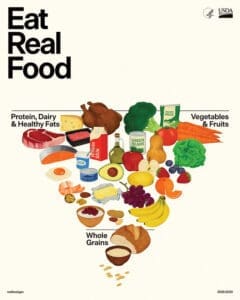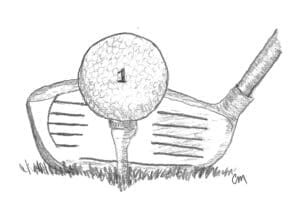By Blaine Davis, Contributing Editor
As I tear the last page of my 2019 calendar from the visor of my “iron steed,” another challenging, if not trying year is in my rearview mirror. The architecture practice, while extremely busy had its moments, both good and bad combining with the “dates on my driver’s license” sometimes threatening me to lock the door one last time.
Reflecting on our family farm, the crops were bountiful, but their prices were again both good and bad. In the case of wheat, it can be often labeled as a profit-challenged crop. In reading Fred Minnick’s second edition, Bourbon Curious, he cited the University of Kentucky Extension office: With wheat “there is seldom room in the margins for any agricultural enterprise to generate positive management returns.”
It is likely that without wheated bourbon production, Kentucky farmers would not be motivated to plant wheat. Closer to home, we wouldn’t be motivated to plant without seed production, wheat’s accompanying price premium. With our corn crop representing more than 75 percent of our annual production, price challenges stem from our country’s ability to raise significantly more bushels, other nations’ abilities to compete in the same world market and tariffs and trade wars. Whether this “war” is real or perceived, exports to those across the Pacific Ocean have been limited, but as 2020 unfolds, there are encouraging signs trade will resume and markets should trend higher.
I might argue that the real “war” is being waged on our home soil with disingenuous information regarding the food we eat and how it is raised, evidenced by the recent 77th annual Golden Globe Awards discharging a salvo with their 100 percent plant-based “vegan” menu. Eschewing beef, fowl and even fish, their banquet only offered King Oyster mushrooms with roasted baby purple and green Brussels sprouts and carrots and a starter of chilled Golden Beet soup. Doesn’t that make your mouth water?
“If there’s a way we can, not change the world, but save the planet, maybe we can get the Golden Globes to send a signal and draw attention to the issue about climate change,” said Hollywood Foreign Press Association (HFPA) President Lorenzo Soria and the event host. “The food we eat, the way we grow the food we eat, the way we dispose of the food is one of the large contributors to the climate crisis.”
Returning fire to this misinformed attack, “If all livestock in the United States were eliminated and every American followed a vegan diet, greenhouse gas emissions would only drop by 2.6 percent.” The National Cattlemen’s Beef Association (NBCA) cites this study, not self-generated, but that of the National Academy of Sciences.
Further counter-attacking this assault, Drovers Editorial Director Greg Henderson, blogged “And the Hypocrisy Award goes to …” As Mr. Henderson so aptly titled his commentary, the HFPA partnered with Icelandic Glacial for their naturally alkaline and “sustainably-sourced natural spring water.”
With biased press coverage, it was pointed out that the water was served in glass bottles rather than plastic, eliminating such waste from the awards ceremony. But, isn’t the real bombshell here, the water had to be shipped from Iceland to California? Siding with Mr. Henderson, I surmise that the carbon footprint of every glass of Icelandic water more than erased any environmental gains from a plate of fungus (mushrooms) and roots (carrots). With a widely accepted statistic that the transportation sector contributes 27 percent to total greenhouse-gas emissions, 750 to 800 gas-guzzling stretch limousines delivered the self-proclaimed climate-conscious attendees to the soiree, possibly earning a “Golden Globe” for their supporting role in this obvious Hollywood hypocrisy.
Another close-to-home volley launched in this “trade war” comes from the American Society for the Prevention of Cruelty to Animals (ASPCA) with their second Factory Farm Detox. This January 2020 campaign will encourage Americans to “eliminate factory-farmed foods” during a Monday-through-Sunday consumer challenge during a week of their choosing. ASPCA and other activist groups push an agenda that traditional farming and ranching practices promote animal abuse and damage to the environment. While many of these claims are unfounded and lack any evidence, the ASPCA calls “the negative impacts of the industrial operations that raise over 95 percent of farm animals across the U.S. in unacceptable conditions not aligned with consumers’ values.” Again, as I have written before, I question their math and not only will I eschew their Monday-through-Sunday challenge, each week throughout the year, my normal well-balanced diet of American farm and ranch-produced meats and produce will be my status quo.
In yet another round of the “war,” Hannah Thompson-Weeman writes in her Jan. 2, 2020, Drovers blog of the latest activist-driven attempt to scare consumers with a documentary, The Game Changers. Realizing their message of pushing the simple message, “go vegan because we shouldn’t eat animals” wasn’t working, this film shown on Netflix features athletes that have gone vegan and urges everyone to do the same in order to be healthy.
Having executive producers associated with the Humane Society of the United States and most of the so-called “experts” that appear in the film affiliated with vegan companies with something to gain, I label this as a propaganda piece similar to leaflets dropped from aircraft behind enemy lines. The nutrition community has returned fire with criticism of their shoddy science, such as an experiment attempting a correlation between meat consumption and of all things – penis function and other exaggerated claims. Thompson-Weeman further recommends countering these attacks with science-based dietitians and resources, such as MeatPoultryNutrition.org and AnimalAgAlliance.org.
If it isn’t enough activist warfare, several major food chains are now promoting plant-based burgers and breakfast sausage sandwiches. My television is inundated with commercials professing burgers that make a “cowboy” actor say, “I must be a damn fool,” it tastes so good. Now a major donut/breakfast chain features Snoop Dogg, known for his plant-based regime of another kind, serving “fake” sausage sandwiches.
What they don’t tell you is that these alternative products, while not necessarily unhealthy, are highly-processed with additives and chemical compounds I can’t even pronounce, similar to that of the food I feed my dog, Emma. A Jan. 7, 2020, Los Angeles Times editorial championed the rise of such alternatives as if cattle ranching is the source of climate problem with a statement, “so you won’t suffer the bitter aftertaste of guilt.” Since just the first of 2020, the U.S. Department of Agriculture (USDA) and the Food and Drug Administration have had eight food recalls for granola, ice cream, cashews, soup, string cheese, brownies and eggs – none for meat or poultry.
Looking ahead through my windshield at the upcoming year, I trust my vision will be that of the year 2020 and see through all the rhetoric in business, farming and my choices for the dinner table.





